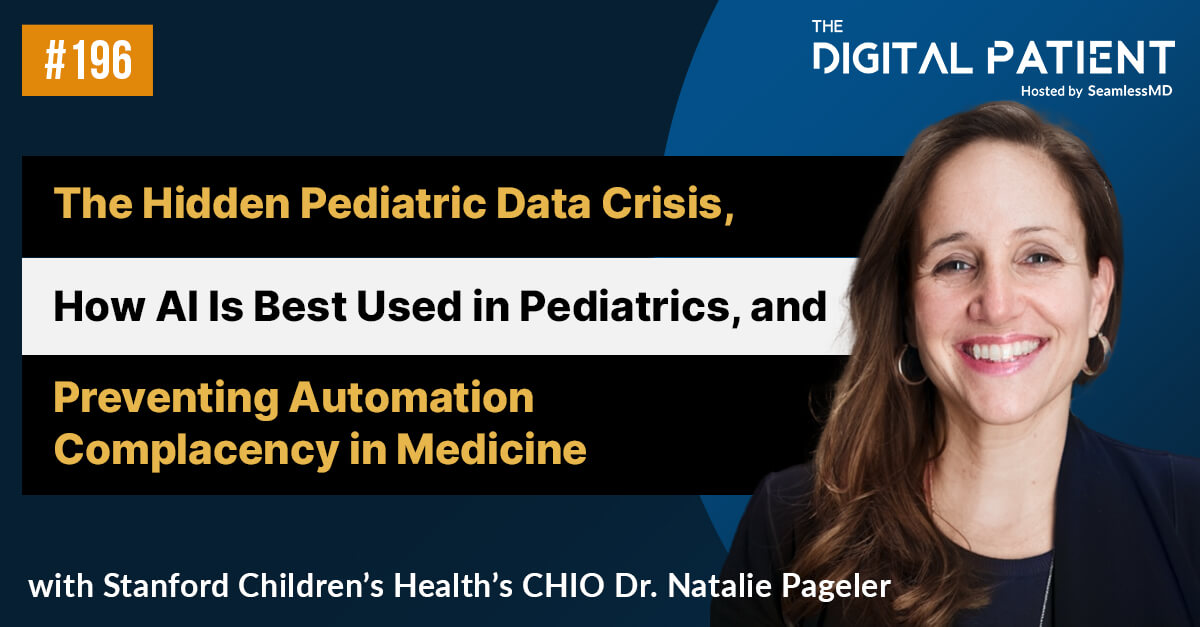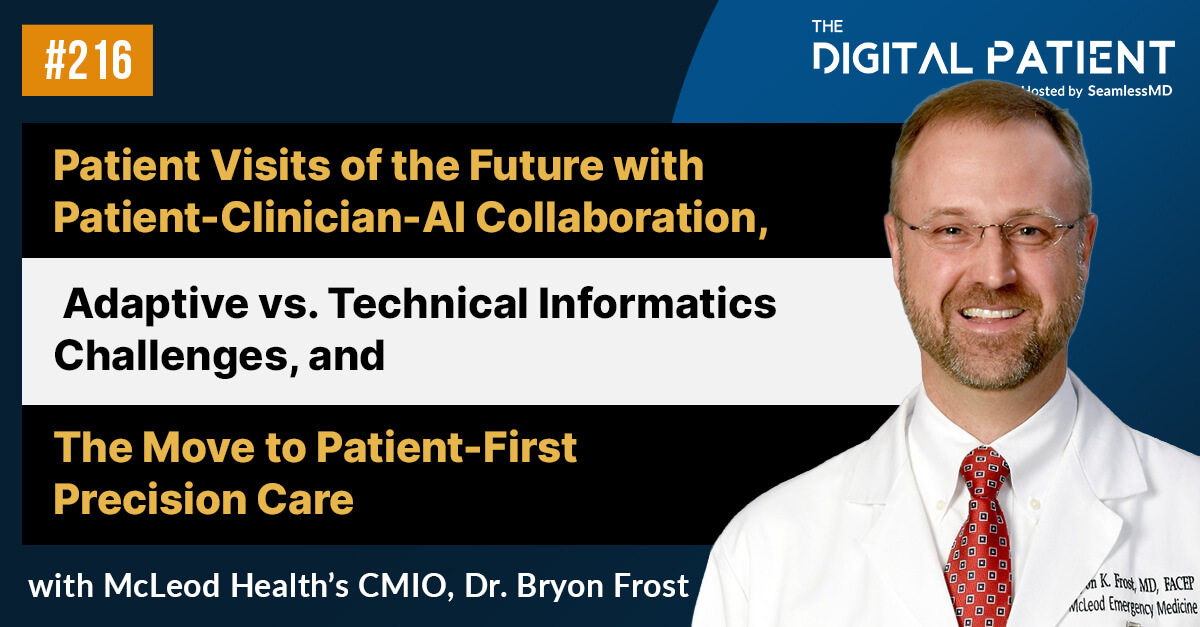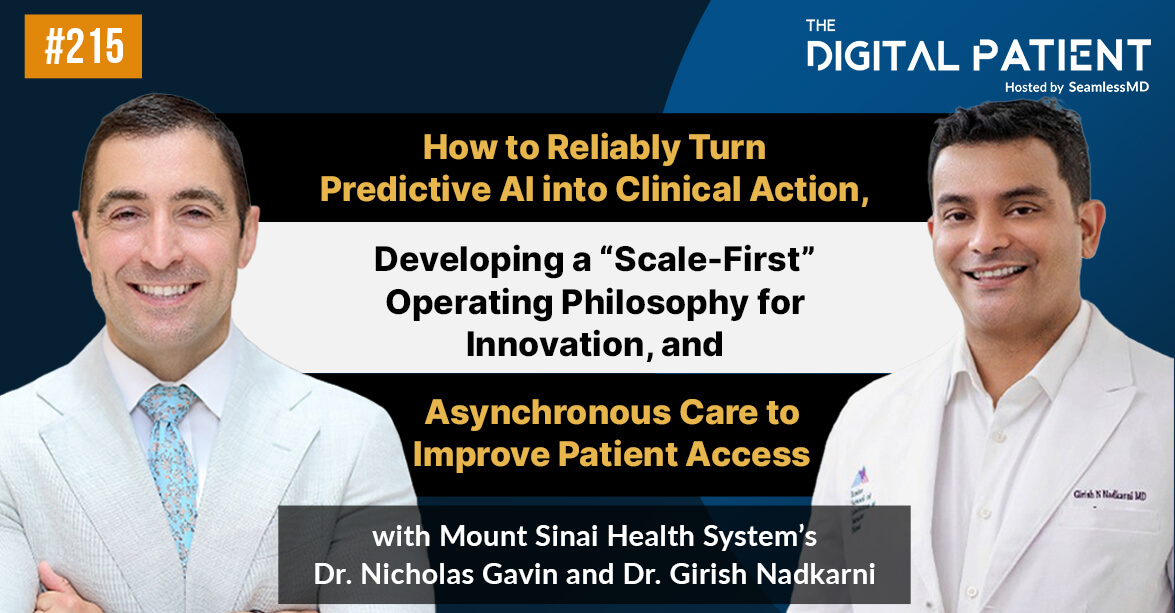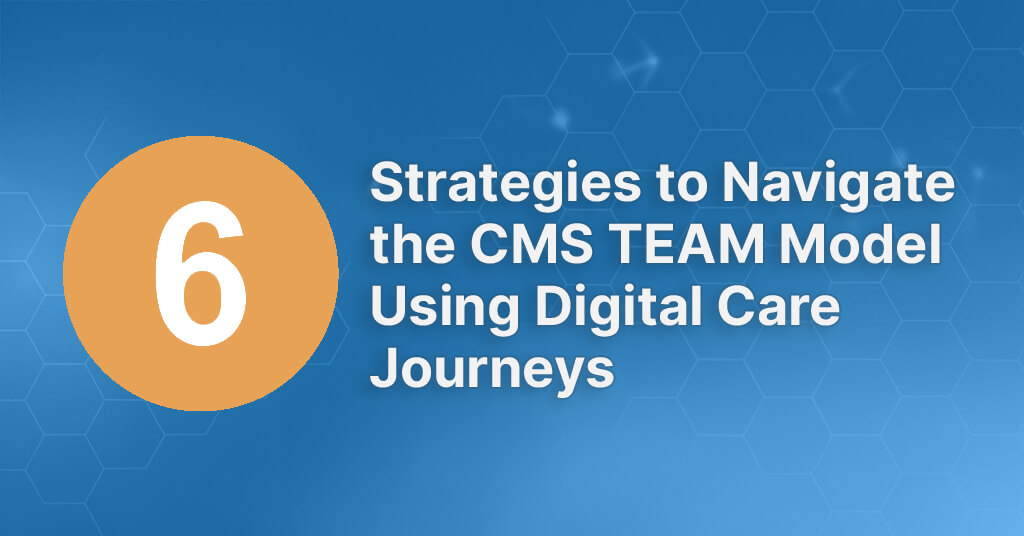Subscribe on: RSS | SPOTIFY | APPLE PODCAST | GOOGLE | BREAKER | ANCHOR
On this episode of The Digital Patient, Dr. Joshua Liu, Co-founder & CEO of SeamlessMD, and colleague, Alan Sardana, chat with Dr. Natalie Pageler, CHIO at Stanford Children's Health, about "The Hidden Pediatric Data Crisis, How AI Is Best Used in Pediatrics, Preventing Automation Complacency in Medicine, and more..." Click the play button to listen or read the show notes below.
Audio:
Guest(s):
- Dr. Natalie Pageler, CHIO at Stanford Children's Health
- Dr. Joshua Liu, Co-founder & CEO at SeamlessMD
Episode 196 - Show Notes:
[00:00:07] Episode preview
[00:05:16] How Dr. Pageler’s path from engineering to pediatrics began with a mentor advocating for abused children.
[00:05:48] How volunteering in a child-abuse shelter inspired her to pursue medicine and pediatrics.
[00:06:26] Discovering a love for physiology in the PICU and completing a fellowship that blended medicine and education.
[00:06:58] Taking a biomedical informatics elective revealed clinical decision support as “just-in-time education.”
[00:07:31] How collaborating with Dr. Chris Longhurst on a PICU decision-support project launched her informatics career.
[00:08:06] Leading Stanford Children’s Epic implementation while co-founding one of the first Clinical Informatics Fellowships.
[00:09:39] Why pediatrics requires unique informatics—children’s physiology and autonomy change dramatically with age.
[00:11:12] The challenge: nearly all children’s EHR phone numbers actually belong to parents, creating communication and privacy risks.
[00:11:58] How incorrect contact data can lead to privacy breaches—even sensitive results sent to parents of adult patients.
[00:15:39] Stanford Children’s redesigned workflows to prevent entry of phone/email for children under 12, ensuring guardian data accuracy.
[00:18:27] Complex downstream effects—patient-matching algorithms, pharmacy interfaces, and front-desk lookup workflows required redesign.
[00:22:34] Multi-year, organization-wide collaboration ensured safe implementation; even appointment reminders were affected.
[00:26:42] Why accurate pediatric data is foundational—mixing parent/child data can distort AI and machine-learning models.
[00:30:07] Rolling out ambient AI across clinics: testing how models handle families and multiple voices in pediatric exam rooms.
[00:30:58] Ambient AI restores focus to patient-family conversations by removing the computer barrier between provider and child.
[00:32:16] Exploring ethical concerns—recording, consent, and privacy for teens and sensitive topics.
[00:33:10] Early results show less documentation time, faster encounter closure, and happier clinicians.
[00:35:02] Identifying low-risk, high-ROI AI use cases: ambient scribes, back-office automation, and safety-event pattern detection.
[00:36:50] Using LLMs to reduce manual chart review for surgical-site infections and safety incidents.
[00:39:19] Evaluating rapidly evolving models requires new guardrails and standards to ensure safe, accurate results.
[00:39:58] Avoiding “shiny-object syndrome”: Stanford relies on rigorous research partnerships before operational adoption.
[00:40:55] Example—turning a digital-health diabetes research project into standard care, reducing school and work disruption for families.
[00:43:56] How automation changes medical training: after an EHR downtime, many residents no longer knew how to write admission orders.
[00:45:26] The next challenge—deciding which foundational skills trainees must still master amid AI assistance.
[00:47:38] Building systems with guardrails to ensure reliability even when AI personalizes orders or decisions.
Fast 5 Lightning Round:
- What is your favorite book or book you’ve gifted the most?
The Lost Art of Getting Lost by Rebecca Solnit - If you could instantly master any skill, what would it be?
Pottery - Would you rather have Super strength, super speed, or the ability to read people’s minds?
Mind reading - What is something in healthcare you believe that others might find insane?
How little any one physician can know of modern medicine. - What is the last movie or TV show you saw?
Ted Lasso (rewatching with her 94-year-old neighbor)
The Digital Patient has been recognized as Feedspot's #1 Patient Engagement Podcast of 2025. Thank you to our listeners for making this happen!
.svg)










.png)
